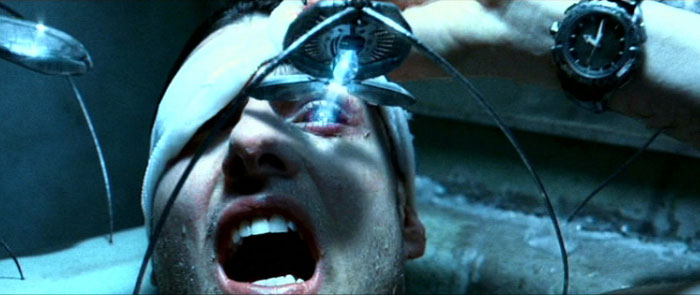Throughout its surprisingly long history, the literary genre of science fiction has had a curious way of often coming true. Particularly prolific in the genre, at least in terms of sci-fi that Hollywood could commercialise, was Philip K Dick. In the 1950’s and 1960’s, he wrote:
- Do Androids Dream of Electric Sheep?—which became Blade Runner
- We Can Remember It for You Wholesale—which became Total Recall
- The Minority Report
- Adjustment Team—which became The Adjustment Bureau
- The Man in the High Castle
In its film version, Minority Report is particularly interesting, mostly due to fact that Steven Spielberg directed. This 2002 movie takes place in a dystopian 2054. A surprising number of predictions it makes have already happenned: gesture-controlled computing, driverless/autonomous cars, IoT-controlled environments, facial & retinal recognition and even (early-stage) predictive policing [1]. Also, hyper-personalised advertising. In the movie, the latter is based on retina scanning matched to complete records of every citizen’s status and activities. Thankfully, we’re not doing that yet in public areas. Here’s the creepy scene most thematically-relevant to Marketing Wilderness. It’s actually two scenes spliced together—Tom Cruises’ character gets recognised as a different person after he gets (SPOILER ALERT) his eyes transplanted:
Seveneves is a novel of far-reaching and epic science fiction written by Neal Stephenson and published in 2015. In time, it covers the present to the early 7000s. Here’s what it predicts, in terms of marketing, 5000 years from now:
Brand advertising exists (SPOILER ALERT) where humans have re-advanced to being able to buy things they don’t need. It’s much less invasive than what Minority Report predicts for 2054, but it works in the same way it does today – when done properly. So we have that going for us.
Social media also exists, and in fact, never disappeared. But although hand-held device and network technology has advanced significantly, social media’s user reach is more controlled. Based on the catastrophic results of modern-day social media, where a single person can influence mankind with no real oversight or governance as to what their truth is.

Yes, a movie version of Seveneves is in the works, directed by Ron Howard.
- Clarisse Loughrey, “Minority Report: 6 predictions that came true, 15 years on”, www.independent.co.uk, June 25, 2017.





